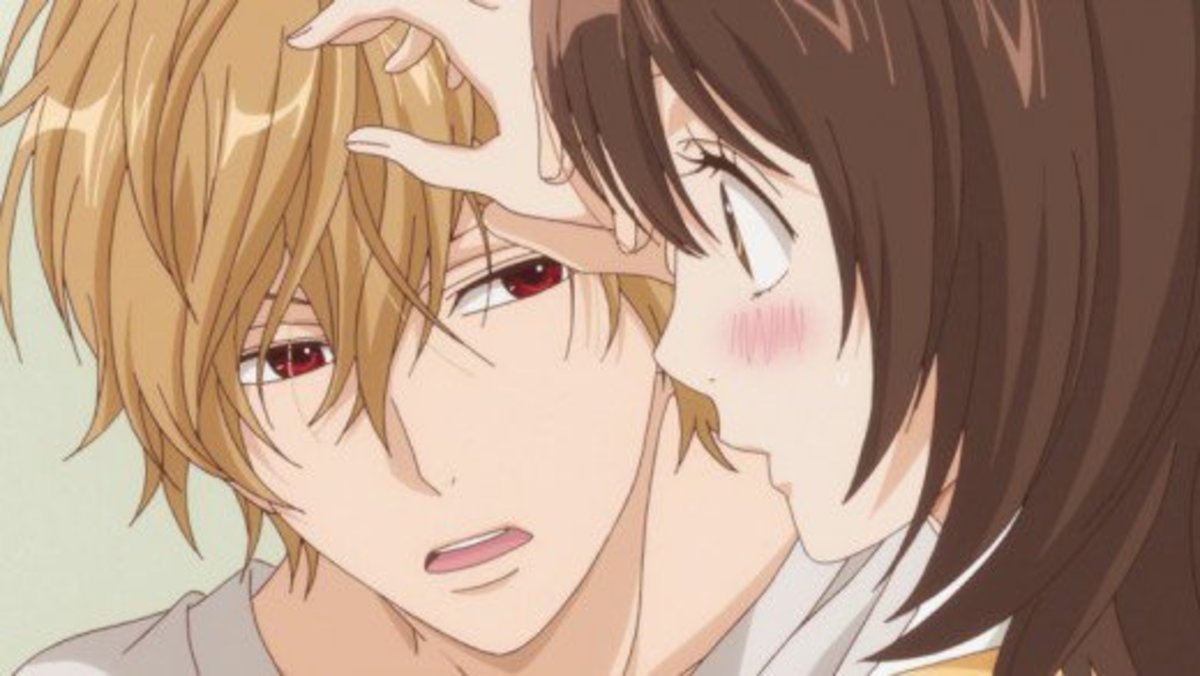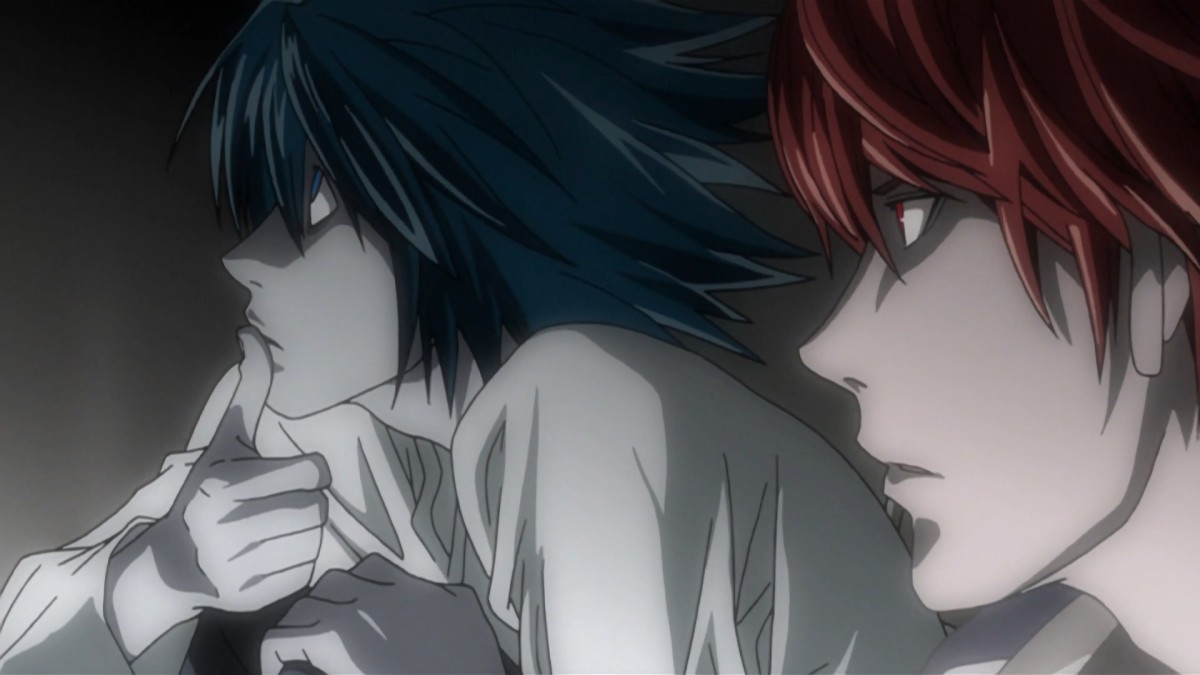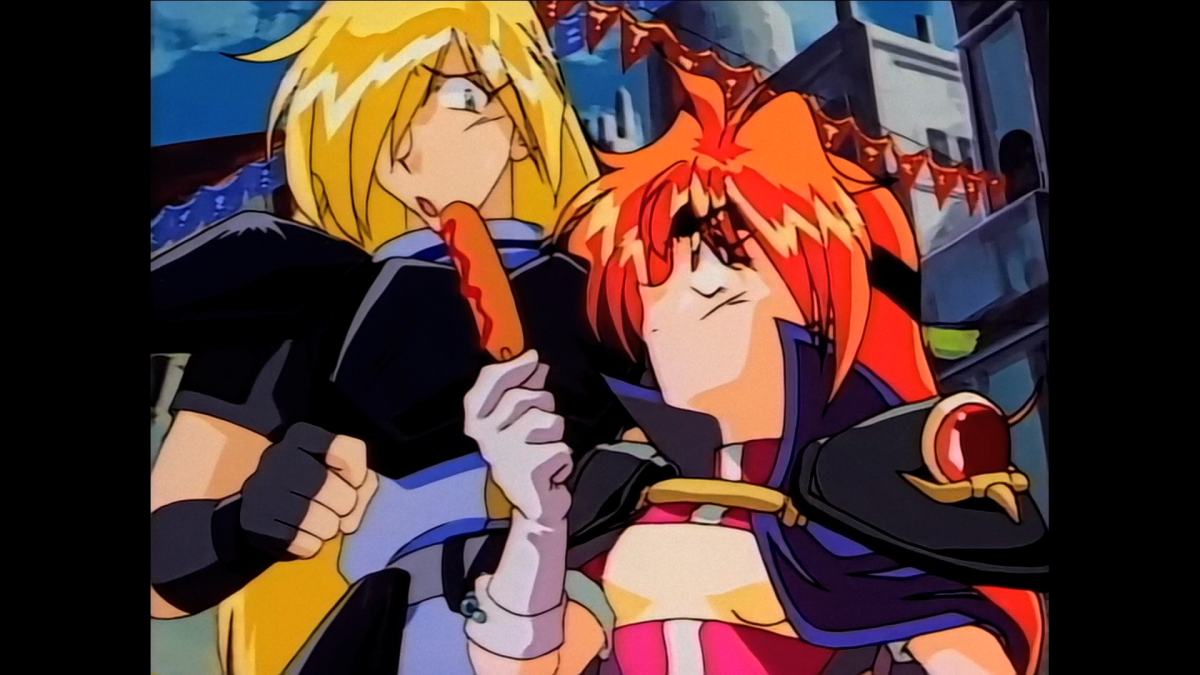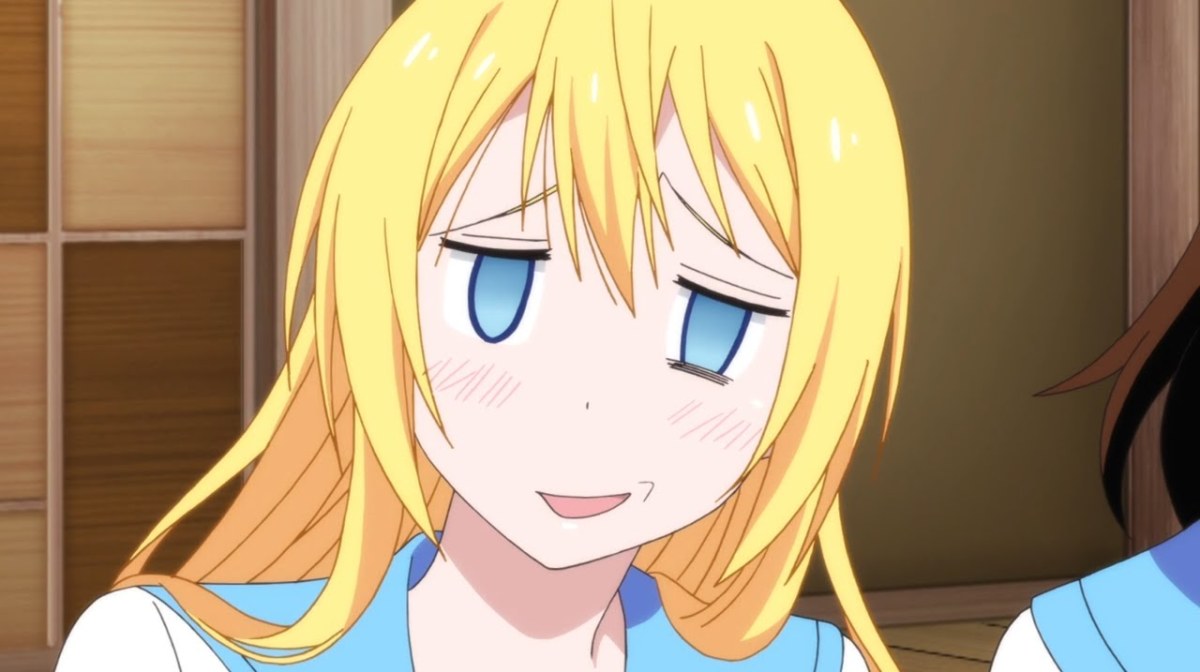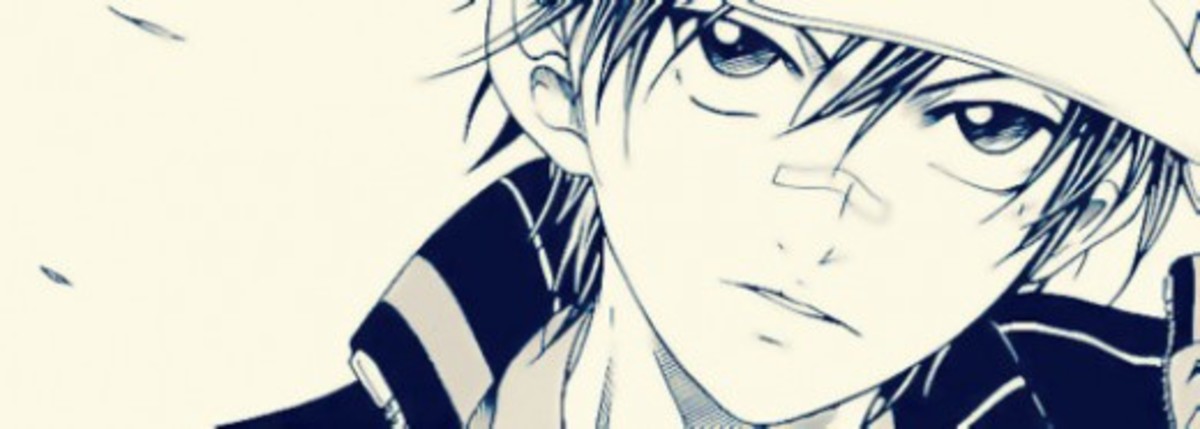Anime Reviews: The Girl Who Leapt Through Time
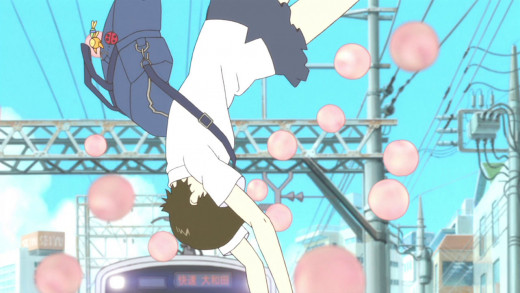
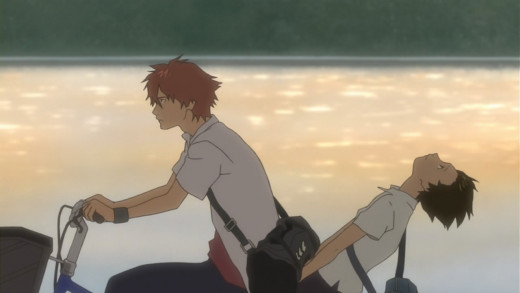
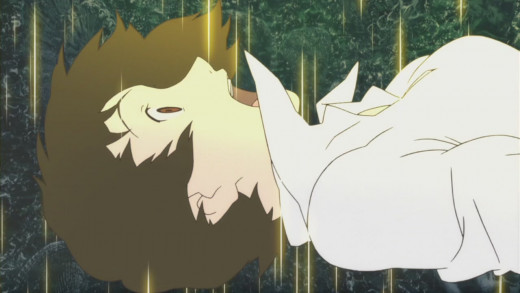
Of course it falls prey to the traps that all time-travel narratives do, but TokiKake still manages to impress with vibrant visuals and attaching characters.
Title: The Girl Who Leapt Through Time a.k.a. Toki wo Kakeru Shoujo
Genre: Comedy/Drama/Romance
Production: Studio Madhouse
Film Length: 98 minutes
Air Dates: 7/15/2006
Age Rating: 7+ (brief shots of blood, dark or disturbing thematic elements)
Summary: Makoto is a perfectly normal teenage girl with perfectly normal teenage girl problems. After having a veritable hell of a day, Makoto is on her way to deliver her mother's peaches to Auntie Witch when, on the downhill incline in front of the train tracks, Makoto finds that her bike's brakes aren't responding. Though she tries desperately to stop herself as the rails lower and the train approaches, she ultimately rams straight into the rail, is sent into the air, and ends up right in front of the train. However, when Makoto opens her eyes, she is near the crest of the hill, relatively unharmed, with 15 seconds to spare before the train crosses; somehow, someway, she has gained the ability to time travel. Though she uses her newfound power for trivial things, Makoto will soon learn that even her harmless actions have grave consequences.
The Good: Marvelous production values and art direction; wonderful voice acting and music; nuanced story with likeable characters
The Bad: Typical time travel head-scratcher moments; could've used more Chiaki and Kousuke
The Ugly: I sure hope Makoto's skirt is protecting her innocence for all those leaps, flips, and rolls...
I did not know what to expect from this movie when I first saw it (aside from a girl who leaps through time, of course), and I can say with all honesty that when the credits rolled, I was left speechless. That only happens when the movie is truly great, by the way. This film in particular, which I will call TokiKake from here on out for convenience reasons, is one of the great works of director Mamoru Hosoda, whose other works include Summer Wars, several of the One Piece films, and even more of the Digimon movies. And he's pretty awesome. But while that's all fine and interesting, for now let's dive right into what makes this movie work!
First off, what a fantastic-looking movie! The artwork would have you believe this is an unassuming and average piece of animation, but when it starts moving, it's incredible. The fluidity is top-class all throughout, and the characters move in a very detailed and lifelike way, even if their actions or expressions are exaggerated. The use of color and deliberate absence of shading are incredibly important for establishing both the mood and the setting, and the results are glorious. The character designs themselves are fairly simple and modest, though they never once come across as generic or uninspired; rather, the simple style helps to emphasize the more realistic setting of the film (well, as realistic as you can be in a story about time-travel). Good stuff.
Secondly, the music is suitably subtle and modest, and the voice acting in both languages is phenomenal. The soundtrack consists mainly of soft piano melodies, never overpowering a scene and never feeling out of place. But the true gems of the soundtrack are Hanako Oku's insert songs, "Kawaranai Mono" and "Garnet," which are both heartbreakingly beautiful songs, and brought tears to my eyes the first time I heard them (and still do occasionally). Also, the voice actors put on very down-to-earth performances, generally coming across as real people instead of actors. I will say, though, that the English dub flat-out amazed me even more than the original Japanese version did, so if you're a dub-lover, this movie will blow you away. I don't have much more to say about this subject, so let's move on.
And now, as I've probably said in every single one of my reviews, the truly important part of any film or TV series is its story and characters, which is exactly where TokiKake is at its strongest. Even though the plot hinges on a supernatural element, there is almost never a point where it felt farfetched or even improbable (for the few moments where it did, more on that later), as events flow organically and are easy to follow. Another great touch is that, for the most part (once again, more on that later), the cause-and-effect scenes where the downsides of time travel are made plain are meshed together consistently and brilliantly. At this point, the story makes it very obvious that Makoto's funtime time travel shenanigans are over, as long as she wants to maintain what relatively little peace she still has.
Now that we're on the subject, the characters are likewise full of nuance and life. Our main trifecta of Makoto, Chiaki, and Kousuke all get along in a very natural manner while still being interesting on their own, what with Makoto's tomboyish spunkiness and Chiaki's slacker charm and Kousuke's knowing maturity. There's also Makoto's very enigmatic yet charismatic Auntie Witch, her capricious friend Yuri, the clumsy but well-meaning classmate Takase, and the hopelessly shy Kaho who crushes on Kousuke hardcore. Each one of them are given purpose and meaning in the story--sometimes even more than you'd at first suspect--and the fact that you come to sympathize with all of them is no small feat for a movie that juggles their development with time travel.
And now I can't hold it in any longer. Time-travel stories always have holes, and TokiKake is no exception. It'll be hard to be specific without giving away heinous spoilers, but there are some classic headscratchers present in the film. Obviously, the film follows Makoto on her relative experience in this time-traveling adventure as she sees it, so we don't see just the final version of the day's events--that would be a very short movie--but there comes a time near the end when all hope seems lost and a crisis is averted by some kind of miracle (possibly a fellow time-traveler?), but it involves a time reversal not caused by Makoto. If the story takes place as Makoto experiences it, wouldn't the time between the crisis occurring and the crisis averted be omitted from her experience? When she makes one particular leap, Kousuke was at home beforehand, but when she leaps just a few seconds backwards in time, she sees him on a bike, so how did he manage that little trick? And that's just the beginning of the itching questions: How does Makoto avoid bumping into her other self? Does the original her dematerialize or is she still walking around somewhere? How would her family or friends react to seeing her disappear and reappear yards away in the middle of a somersault? For a short time, she abuses her power by using it to make impossible catches during her friends' "baseball" practice--do none of them see her instantly materialize right before catching it? Why does Auntie Witch take Makoto's stories in stride? Is the film implying she also had this power at one point? Is she just weird like that? And furthermore, there are a few hints that some disaster occurs in the future that turns the Earth into a wasteland, but it's never given much elaboration. Long story short, as long as you just smile and nod when your brain begins to itch when something time-travel-ish happens, you'll enjoy yourself a lot more.
Oh, and it might just be a nitpick, but I really wanted to see more of Chiaki and Kousuke. The film establishes that they and Makoto are close friends, and they're likable characters, but...considering they're supposed to be really close friends and their camaraderie is engaging, I would've liked to have seen more of it. We only get to see bits and pieces of their lives together and of how they met, but it wasn't quite enough for me. I would have loved nothing more than to have another 5-10 minutes of film devoted entirely to their interactions with each other. That might just be me, though.
However, when all's said and done, TokiKake is still a great film for any anime fan to check out, and perhaps even non-anime fans as well. The animation is great, the music is gorgeous, the story is solid (though filled with a lot of little holes), and the characters are very attaching, so there really is no reason I can think of for anyone to skip out on this one. Go pick it up, if you've got the money and the 98 minutes to spare.
Final Score: 9 out of 10. Even though its logical holes will gnaw at your brain long after it's over, wonderful visuals and an engaging story ensure that TokiKake is still among the best anime films available on the market.

